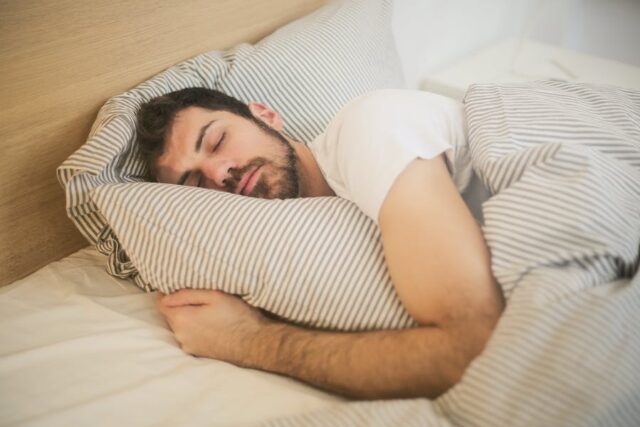Many people struggle to sleep, and the reasons are many, ranging from unhealthy bedtime habits that undermine sleep to health conditions, including sleep disorders.
If you’re trying to sleep better, you’ve probably sought solutions like medications and activities that promote sleep. These activities that don’t involve drugs are, in fact, bedtime rituals or routines designed to strengthen your sleep schedule and promote healthy sleep.
Why Are Bedtime Rituals Important?
Your sleep and wake cycles are determined by your internal body clock, also known as the circadian rhythm. Since external factors can influence your body clock, you can adopt bedtime rituals to help establish a healthy sleep schedule.
Sleep rituals vary, and it’s practically all about things that make you happy or relaxed. They aren’t supposed to be overly stimulating as that undermines sleep quality.
These practices are healthy sleep habits that can help you create structure and sleep better for optimum health. Here are some practices considered essential bedtime rituals:
Limit Caffeine
Caffeinated drinks like coffee are disastrous for your sleep when you take them too close to bedtime. Granted, a cup of coffee on a cold night after a long day can feel uplifting and relaxing.
While it is uplifting, it’s certainly not relaxing because coffee is a stimulant and a strong one, too.
If you can’t go without caffeine, try taking it earlier in the evening, ensuring you still have at least four hours before bedtime. And yeah, the effects of caffeine can take that long to subside.
Work on Your Thoughts
When you’re busy, you likely push away your thoughts and concerns. Still, they may haunt you at bedtime because that’s the perfect opportunity for thoughts and worries to intrude.
You can address that problem by setting aside time to work on your thoughts before bed.
You could use the opportunity to think all you want, plan your day and write things down to uncoil your mind.
Get in the Shower
Taking a warm shower or dipping in a warm bath is a recommended bedtime practice. It’s super therapeutic and can induce sleep.
However, not everyone prefers showering or bathing with hot/warm water. If you like it cold and simple, so be it.
Hot or warm water is more relaxing as it relaxes the muscles and promotes circulation. After the shower, your temperature will likely drop a bit, and the soothing effects will help you sleep sooner.
While cold water results in a dramatic drop in body temperature and may leave you even more tense, it can be very refreshing, and eventually, you’ll loosen up.
Exercise
Working out is crucial for your well-being, and it can help you sleep better. But there is a specific way to go about it if you want it as part of your nighttime routine.
Stick to low-intensity exercises at least half an hour before bed. These may involve stretches and breathing techniques to loosen up your body.
Vigorous exercises are more beneficial, having sedating and stress-relieving effects. But they are too stimulating to perform before bed. Instead, perform these exercises earlier in the evening.
Read or Listen to Music
Reading is a favorite pastime for many, an old tradition that pairs well with bedtime. It’s entertaining but also relaxing and can help you sleep faster.
Alternatively, you could listen to music due to its influence on moods. When picking music, select those that are soothing and contain uplifting messages to help you relax.
Drink Herbal Teas
If you tend to have difficulties falling asleep, instead of popping sleeping pills, you may want to embrace herbal teas as part of your nighttime ritual.
Herbs like Valerian, Chamomile, and Passionflower contain soothing and medicinal compounds that can help improve sleep quality.
Cannabis has also soared in popularity as a powerful medicinal plant with much scientific evidence to back it up. Since the herb can help with restlessness and sleep problems, you could consider it.
These days, it’s a lot easier to get your hands on weed as most states have legalized it for medical use. If your home state hasn’t, you still have options, as some states accept qualified out-of-state patients.
The Bottomline
Bedtime rituals can be effective in maintaining a sleep schedule and improving sleep quality.
However, keep in mind there’s no specific nighttime ritual that works for everyone. Your needs are unique, and the best you can do is come up with practices that work for you.














